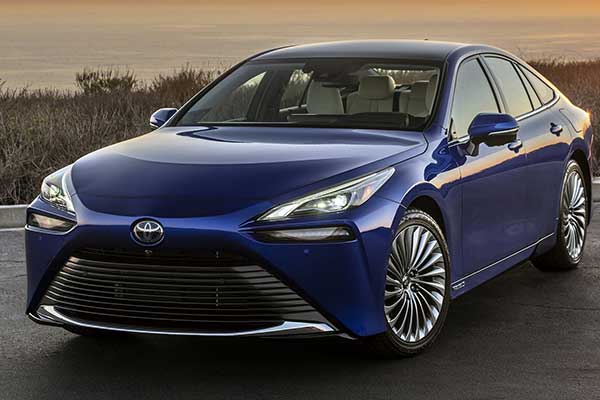
From building vehicles equipped for the surface of the moon to making strides towards a future where autonomous cars can safely coexist with drivers, Toyota is always looking for ways to be on the forefront of innovation. So what’s next for the award winning manufacturer? The Toyota of Plano team is ready to take a look at Toyota Engineering’s latest project, developing more hydrogen powered vehicles, but first, it’s important to understand where this interest came from.
In the last several decades governments around the world have felt an enormous pressure to reduce their overall carbon emissions. While finding alternatives to gas-powered vehicles has been a topic of interest in the past due to concerns about dependence on foriegn oil, increased oil prices, and gas shortages, environmental concerns that became more prevalent in the 1990s created a renewed interest in electric vehicle development. But despite growing interest in electric vehicle production and improved EV performance, the US had a growing middle class, low gas prices and a general lack of concern for fuel-efficient vehicles. This coupled with high production costs caused electric vehicles to remain scarce on the consumer market, through the end of the 20th century. It wasn’t until a reemergence of concern about fuel prices and the first mass-produced hybrid electric vehicle, the Toyota Pruis, made EVs more attainable that consumer demand began to grow.
Fast forward to 2022, many government officials have turned to major manufacturers to help limit fossil fuel use, in an effort to reduce emissions. For the automotive industry, this has pushed manufacturers to improve their products' fuel economy and more heavily invest in researching alternatives to traditional internal combustion engines. Thanks to the increased consumer demand and competition for electric vehicles, many auto manufacturers were already shifting their focus on researching and developing their own line up of electric vehicles. This recent increase in demand and increase in environmental accountability has caused an electric race within the automotive industry. Still there are drawbacks to owning an electric vehicle, one being the amount of time it takes to reach full charge and the limited range one can drive on a full charge. While many manufacturers still remain fully focused on electrifying their lineup of vehicles and charging capabilities have expanded, Toyota is committed to continuing to find viable alternatives to both battery and gas powered vehicles.
You’ve probably heard of hybrids, like the Toyota Prius and fully electric vehicles (or Battery Electric Vehicles), vehicles that rely exclusively on a rechargeable energy in the battery to propel the motor, but have you heard of a Hydrogen Vehicle? Hydrogen Vehicles are exactly what they sound like, vehicles that use Hydrogen to power their motors. When it comes to finding a renewable alternative to gasoline, Hydrogen, as the most abundant element in the universe, may be the perfect renewable fuel source. So how does one create energy from hydrogen gas? Manufacturers like Toyota have shifted focus to research and development of hydrogen fuel cells. These fuel cells power an electric motor through a chemical production of electricity and water vapor, which is produced when hydrogen reacts with oxygen. The waste that is then released back into the atmosphere is water vapor, a very common and harmless naturally occurring substance.
In the race to limit emissions, Toyota is once again leading the competition. Pieter Nota, Sales Chief at BMW, has announced a partnership with Toyota. According to the BMW Sales Chief, Toyota and BMW have teamed up to mass-produce and sell fuel-cell EVs, which could hit the consumer market as soon as 2025.
It’s fitting that the first manufacturer to mass-produce a hybrid electric vehicle would be working to produce the first mass-produced hydrogen fuel-cell EVs. Although it’s important to note that while Toyota is now taking on this partnership, Toyota has a long history of working on hydrogen fuel cell EVs. In fact, Toyota recently released its 2022 Mirai, with a range of up to 400-miles.
Check in with Toyota of Plano to find out more about the development of Toyota's impressive and diverse lineup of vehicles. Our Toyota of Plano team is proud to represent a brand that is constantly on the forefront of innovation. Innovation that continues to push other car manufacturers towards further accountability for their products. From being the first to produce a highly functioning hybrid vehicle that proved hybrids could compete with gas-powered vehicles to committing to Hydrogen car production, Toyota is made up of an extraordinary team of engineers that are focused on improving their products to better the consumer experience.
Come visit us today, and ask about our full line up of 2022 Toyota vehicles, including the 2022 Camry, Corolla, Rav4, Sequoia, Tundra, Tacoma, and more! When you visit Toyota of Plano you can feel confident that you’re receiving the best deal on your new ride and a vehicle that was customized to meet your lifestyle and improve your driving experience.
